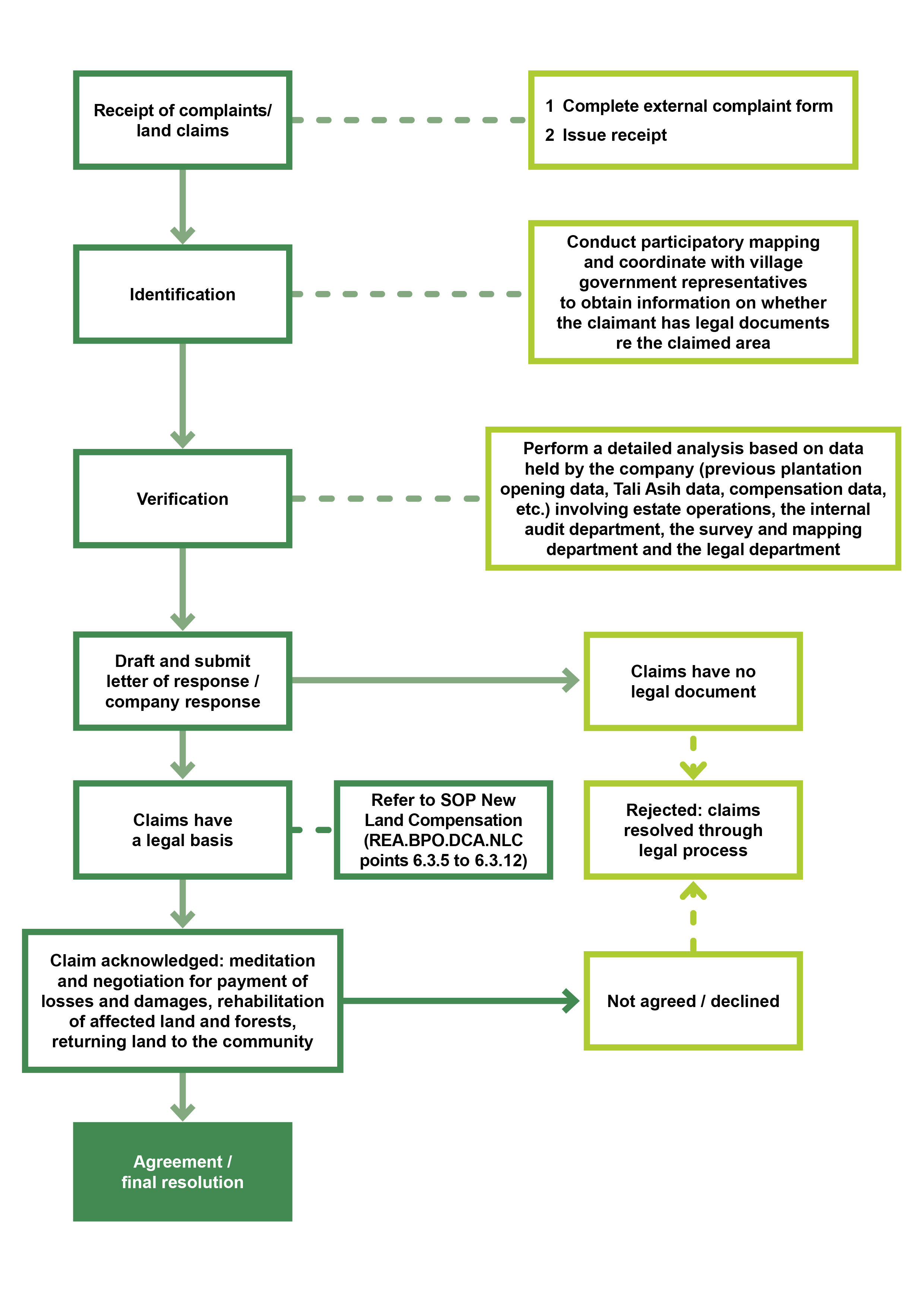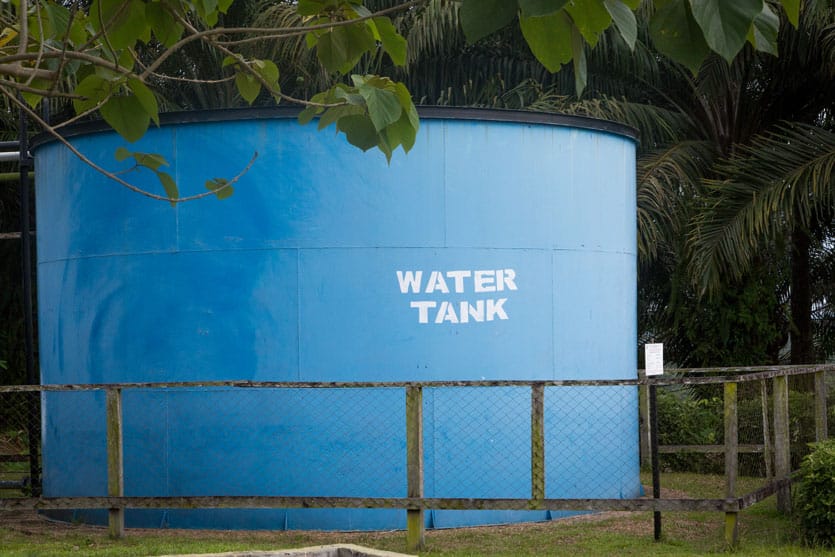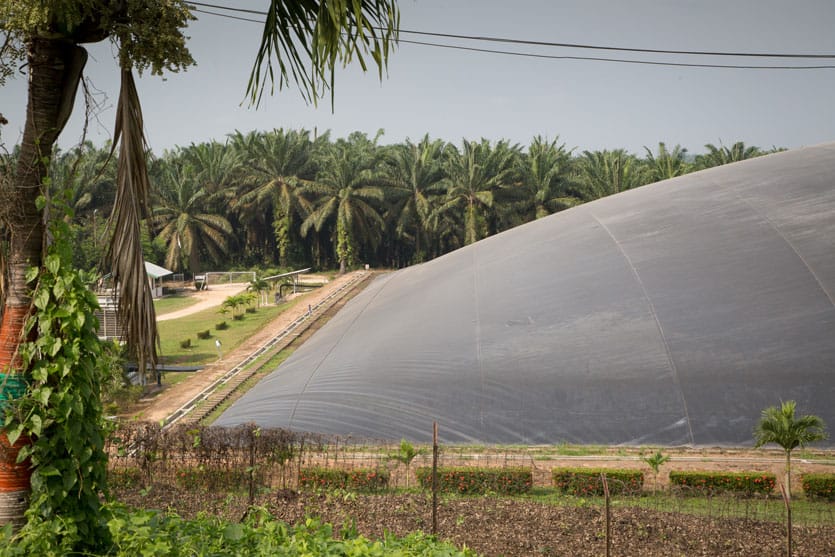Communities
REA’s ability to operate is dependent on establishing and maintaining good relationships with the communities that live near the group’s operations. To achieve this, the group aims to:
- ensure that all formal and customary community land use rights are respected and transferred to the group with the FPIC of the rights-holders
- assist the communities which are affected by REA’s operations to become socio-economically self-sufficient by implementing community development programmes and smallholder schemes
Community relations
Good relations and mutual respect between the group and the communities impacted by its operations are of fundamental importance to the living standards and conditions of the local communities and to the group’s ability to operate sustainably and efficiently. Regular meetings take place between members of an experienced in-house team and representatives of the communities to establish, maintain and improve relationships, offering the opportunity to discuss and resolve concerns that may arise relating to the group’s operations.
Local community development activities continued during 2023. These included: collaborative health programmes with free health checks for the community and mass blood donation schemes; education initiatives such as scholarship programmes at elementary and high school level; promotion of youth sports through the provision of equipment to schools; cultural support such as donations for significant national religious events; and loans of heavy equipment to improve infrastructure, repair public facilities, and to construct community buildings (traditional lamin adat besar houses) for religious and other communal activities.
Expanding on its existing relationships with the local communities, the group has continued to work in collaboration with an independent delivery partner (PT Plan B), the local government and local communities with the aim of establishing public-private-community partnerships in the vicinity of the group’s operations. Following on from the pilot project initiated in 2022, three further villages completed the process of mapping community land use maps detailing the current land use in each village and setting out the development aspirations for their respective administrative areas. The group is now working with supply chain partners to fund the roll out of this project to 28 villages neighbouring the group’s operations. Commitments have been received from the local district government to join this initiative with the aim of increasing the area covered to the entire district jurisdictional area.
In addition to supporting smallholder farmers growing oil palm, the group encourages the local communities to improve their resilience and reduce their dependency on oil palm cultivation by developing other businesses. The group supports projects to diversify their food production and income with agricultural products, such as corn, vegetables and rice, and provides practical assistance in the development of fishponds, irrigation of rice fields, and distribution of seeds. The group also continues to work with local communities through village owned enterprises (Badan Usaha Milik Desa) to provide transport for FFB, CPO and other palm products under contract.
Since 2021, the group has been cooperating with the local government and communities to develop a network of trained community groups to promote fire prevention and firefighting capabilities. Training courses in local villages continued throughout 2023 and a fire prevention and control agreement was reached between the group and the local communities with firefighting equipment acquired for the relevant communities. The cooperation is intended to encourage efforts to reduce the traditional reliance on fire for clearing village land and, in parallel with other group funded community development initiatives, to promote forest and habitat conservation.
Responding to a government initiative, the group runs waste and recycling centres in the housing areas of each of its estates. The centres gather waste from employees and their households and the waste is then collected by two local district bodies as part of the inorganic waste management programme sponsored by the regional Environment and Forestry Service. Households receive financial compensation based on the volume of waste deposited and the group benefits from the reduction in waste disposed of in landfill.
Land use rights
Land tenure in Indonesia is complex, with distinct legal and customary systems for allocating land use rights administered by numerous authorities that operate at the national down to the sub-village level. This frequently results in overlapping claims to a particular area of land between companies and local communities as well as between villages and individuals. Consequently, an area of land leased to a company by the government for the purpose of oil palm cultivation will, almost without exception, be encumbered with an array of formal and informal land use rights.
REA’s Responsible Development policy and Human Rights policy demonstrate the group’s commitment to indigenous and local communities’ rights, and the rights of any person affected by its operations, in accordance with applicable Indonesian regulations and the International Bill of Human Rights, the core conventions of the International Labour Organisation’s Declaration on Fundamental Principles and Rights at Work, the UN Declaration on the Rights of Indigenous Peoples (UNDRIP) and ILO Indigenous and Tribal Peoples Convention (no. 169).
The Responsible Development policy applies to all land developed by REA that will be either owned by REA or its associated smallholder cooperatives and independent smallholders. REA ensures that any third party contractors involved in the development of land also adhere to this policy.
The Human Rights policy applies to any person affected by the operations of any company within REA, including employees at any level, all contractors, suppliers and local communities.
The Free, Prior & Informed Consent (FPIC) of local communities is obtained prior to development: REA endeavours to ensure that everyone with legal, customary (or traditional) land tenure and/or ownership and/or access/use rights to the land is identified and fully understands the positive and negative implications of the proposed land development. REA respects the right of local communities to give or withhold consent to oil palm cultivation on land to which they have legal, customary (or traditional) land tenure and/or ownership and/or access/use rights. REA engages in negotiations and provides fair compensation to those with such legitimate rights to the land. During these negotiations communities can choose to be represented by their own cultural, social and political institutional bodies.
Going beyond essential FPIC, REA also engages in regular discussions with village members and with the (customary) head of village. In carrying out activities in the villages that surround the group’s estates, the Community Development team seeks to always involve community representatives from the relevant village, so that the ensuing activity is the result of a joint discussion between the community and the company. This also means that when determining the area of farmers’ land, participatory mapping is conducted together with the management of the cooperative and the landowner.
Establishing an oil palm plantation in Indonesia can involve various land claims by communities as a result of overlaps between plantation land allocations and land customarily used by the communities. Not all land claims lodged by villagers are found to be legitimate and the village affairs department works to resolve any such claims effectively and transparently. All claims are resolved through the FPIC approach with the involvement of local government authorities and the respective claimants.
REA collaborates with NGO Plan B and local communities to conduct participatory spatial analysis and land use mapping with 8 villages (Buluq Sen, Kelekat, Long Beleh Modang, Long Beleh Haloq, Muai, Muara Ritan, Kembang Janggut, Pulau Pinang, and Perdana) to improve village land governance and reduce the risk of conflicts. This initiative involves the local government to support provincial spatial planning for the protection of forests and to support community livelihood activities.
Land rights claims against the group have decreased significantly in recent years, from 27 claims in 2017 to a handful of claims in each year since. In 2023, three new land claims were lodged covering an area of 9.2 hectares in an HCV area.
REA’s procedure for resolving land conflicts, if any arise, is shown below:

Community resources
Over the last 20 years, REA has invested considerable time and effort to ensure that its operations do not negatively impact local communities but rather contribute to their livelihoods. This has evolved into schemes designed to ensure that local communities share in the benefits generated by REA’s operations without being dependent upon them. Initiatives include maximising employment opportunities for local people, supporting and improving local businesses, expanding smallholder schemes and investing in infrastructure projects that will catalyse further development. In supporting projects, REA recognises the importance of local villages having control over the management and maintenance of their own resources.
In 2013, REA adopted a new vision for its community development programme: to become a leading partner in helping the community to become socio-economically self-reliant. This vison is underpinned by a community development strategy which aims to have long term positive impacts on both REA’s relationship with the local villages and their welfare. The key elements of this strategy are:
- To prioritise investment in infrastructure projects, particularly access to electricity, clean water and roads. REA will consider supporting other infrastructure projects proposed by local communities as long as they will benefit the village as a whole
- To provide education and training that will assist members of the local communities to enter employment or establish their own business
- To involve local government and neighbouring companies in designing and implementing community development programmes wherever possible.
To further expand community driven projects, REA is working with an independent delivery partner, the local government, and local communities with the aim of establishing public-private partnerships for all of the communities in the vicinity of the group’s operations. As part of a pilot project, 2 villages have, for the first time, produced community maps setting out the development aspirations for their respective administrative areas.
Clean water
Water treatment facilities installed by the group provide access to clean drinking water for 17 local villages.

Food security
REA is committed to ensuring food security in the local communities by maximising local sourcing and assisting with crop diversification, access to food and markets. In addition, REA focusses on providing groups of farmers and villagers in the local communities with support and the provision of agricultural inputs such as vegetable and rice seeds, fertilisers and land preparation. The community development team has provided training to villagers in rearing and selling catfish as a source of fresh meat and protein for local villagers, as well as training and marketing support to vegetable and livestock farmers enabling them to access new markets for their produce and helping secure local food sources for the community. Support for a rice growing enterprise run by a local agricultural group has enabled rice yields to be significantly increased and thus meet the requirements for the entire village, replacing rice imports and allowing the profits to be reinvested in further agricultural enterprises.
Green electricity
REA generates renewable energy from the methane capture facilities at 2 of the palm oil mills. The methane captured drives 7 generators each of 1 megawatt capacity. 4 megawatts of generating capacity provide power for REA’s own use which has enabled the group to achieve material savings in energy costs as consumption of fossil fuels (diesel oil) for electricity has been largely eliminated on the REA Kaltim and SYB estates. 3 megawatts of generating capacity supply power to 26 villages and sub-villages surrounding the group’s estates by way of the local grid owned by the Indonesian state electricity company, PLN. Within these villages, some 8,703 households have so far opted to install prepayment meters supplied by PLN.
In 2023, REA increased renewable energy generation from its methane capture facilities to 17,933,000 kWh compared with 17,520,000 kWh in 2022. This meant that in 2023 99.6% of electricity for REA’s oil palm operations was sourced from renewable energy from REA’s methane capture facilities, with only the remaining 0.4% being sourced from purchases.
In addition to the substantial economic benefits, methane capture has substantially reduced REA’s GHG emissions since 2012. REA now aims to source 100% of its electricity requirement for its 3 mills through methane capture by 2027.

This collaboration brings material long term benefits for the local population, the planet and REA’s business. PLN, which controls all sales of electricity in Indonesia, purchases from REA the electricity utilised by the local communities. Communities who choose to have electricity meters installed have access to a reliable source of electricity, which should act as a catalyst for socio-economic development. Since many of these villages previously relied on diesel powered generators, switching their supply to electricity from a renewable source reduces diesel consumption and consequently GHG emissions.